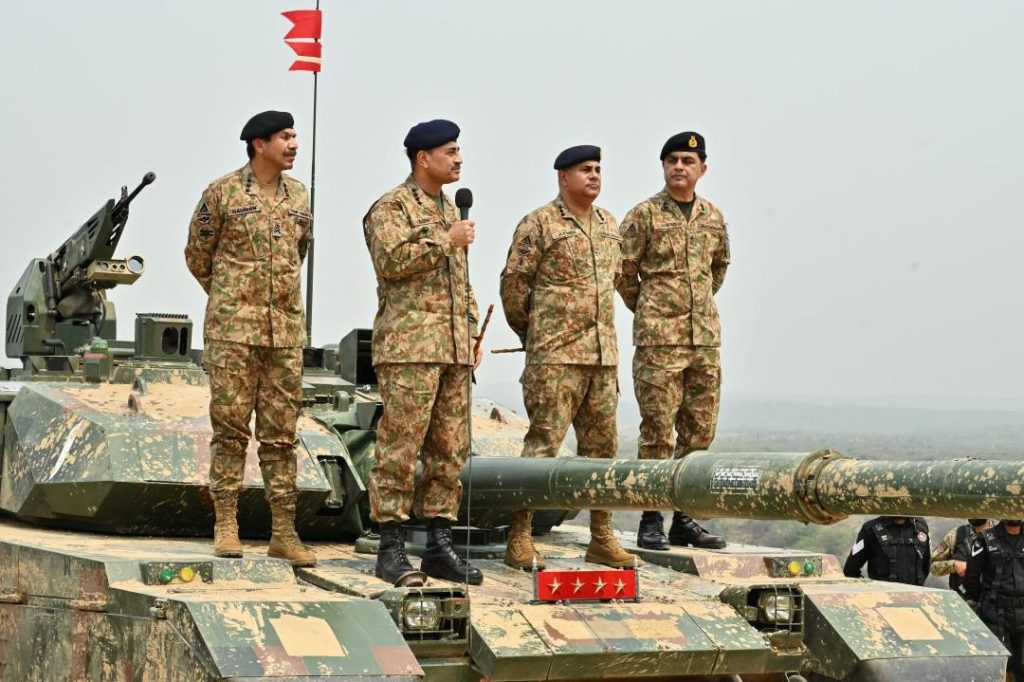
Asim Munir is Osama Bin Laden in a Suit: Former US Official
In a recent statement, a former Pentagon official, Michael Rubin, has sparked controversy by comparing Pakistan’s army chief, Asim Munir, to Osama bin Laden, the notorious leader of al-Qaeda. Rubin, a well-known expert on Middle Eastern affairs, made this remark during an interview, where he also expressed his opinions on US President Donald Trump’s foreign policy.
Rubin’s comments came after Munir made a nuclear threat, stating that Pakistan could take half of the world down with it if it were to be attacked by the United States. This statement has raised concerns among international leaders and experts, who are worried about the potential consequences of such a threat.
Michael Rubin, a former Pentagon official and a currently a resident scholar at the American Enterprise Institute, made these comments during an interview with ANI News. Rubin is a well-respected expert on Middle Eastern affairs and has written extensively on the region. He has also been a vocal critic of Pakistan’s military and its role in the region.
Rubin’s comparison of Munir to Osama bin Laden is a stark reminder of the dangers of nuclear proliferation and the need for international cooperation to prevent the spread of nuclear weapons. It is also a warning to Pakistan’s military leaders that their actions have consequences, and that they must take responsibility for their actions.
The comparison between Munir and Osama bin Laden is not just about their appearance or their actions, but also about their ideologies. Both Munir and Osama bin Laden have been known to promote radical ideologies and have been involved in violent conflicts. While Munir has not been directly involved in any violent conflicts, his statements and actions have been seen as provocative and have raised concerns among international leaders.
Osama bin Laden was a master of exploiting the political and economic instability of the Middle East to further his goals. He was able to recruit thousands of followers and inspire them to carry out terrorist attacks around the world. Similarly, Munir has been able to use his position as Pakistan’s army chief to promote his own ideology and to inspire his followers to take action.
In the past, Munir has been involved in several controversial incidents, including the 1999 hijacking of a Pakistan International Airlines plane, which was forced to land in Afghanistan. He was also involved in the 2001 attack on the Indian Parliament, which was carried out by a group of militant Islamists.
Rubin’s comments are a warning to Pakistan’s military leaders that their actions have consequences, and that they must take responsibility for their actions. They are also a reminder that the international community is watching and will not tolerate any actions that threaten global security.
In recent years, Pakistan has been involved in several conflicts, including the war in Afghanistan and the conflict with India over Kashmir. Pakistan’s military has also been involved in several controversial incidents, including the 2019 attack on Indian forces in Kashmir, which resulted in the deaths of several soldiers.
Pakistan’s military leaders have been accused of using their power to promote their own interests and to further their own ideologies. They have also been accused of supporting militant groups and of providing them with funding and training.
Rubin’s comments are a reminder that the international community is watching and will not tolerate any actions that threaten global security. They are also a warning to Pakistan’s military leaders that their actions have consequences, and that they must take responsibility for their actions.
In conclusion, Michael Rubin’s comparison of Asim Munir to Osama bin Laden is a stark reminder of the dangers of nuclear proliferation and the need for international cooperation to prevent the spread of nuclear weapons. It is also a warning to Pakistan’s military leaders that their actions have consequences, and that they must take responsibility for their actions.
As the world continues to grapple with the consequences of Pakistan’s nuclear threat, it is essential that international leaders and experts continue to speak out against such threats and to work towards a more peaceful and stable world.



